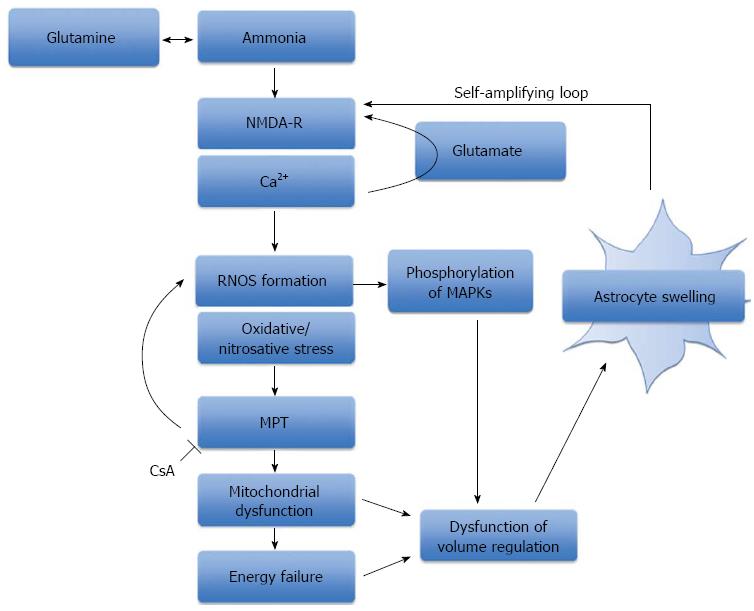Copyright
©2013 Baishideng Publishing Group Co.
World J Gastroenterol. Dec 28, 2013; 19(48): 9240-9255
Published online Dec 28, 2013. doi: 10.3748/wjg.v19.i48.9240
Published online Dec 28, 2013. doi: 10.3748/wjg.v19.i48.9240
Figure 2 The role of oxidative stress, mitochondrial permeability transition and energy failure in ammonia-induced neurotoxicity.
A schematic representation of the central role that ammonia plays in the production of oxidative/nitrosative stress and astrocyte swelling. Ammonia-induced astrocyte swelling is mediated by oxidative and nitrosative stress resulting in the induction of the MPT, activation of intracellular signaling kinases and alterations in gene expression. Mitochondrial dysfunction and energy failure culminates in astrocytes failing to regulate their cell volume, thereby resulting in astrocyte swelling. NMDA-R: N-methyl-D-aspartate-receptor; RNOS: Reactive nitrogen and oxygen species; MPT: Mitochondrial permeability transition; MAPKs: Mitogen-activated protein kinases; CsA: Cyclosporine A.
- Citation: Scott TR, Kronsten VT, Hughes RD, Shawcross DL. Pathophysiology of cerebral oedema in acute liver failure. World J Gastroenterol 2013; 19(48): 9240-9255
- URL: https://www.wjgnet.com/1007-9327/full/v19/i48/9240.htm
- DOI: https://dx.doi.org/10.3748/wjg.v19.i48.9240









